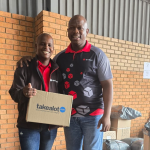The Sowetan wasn’t far behind, 22% down. The bloodbath was catholic; very few publications, whether weekly or daily, were left unscathed.
The numbers today are a far cry from the heyday of South Africa’s transition to democracy when The Star, as an example, hit an all time high of more than 250 000 copies a day. Today it sells 55 889, but it is still the sixth highest selling newspaper in the country and the third highest selling daily behind The Daily Sun at 99 485 per day, itself a shadow of the colossus that once ripped up the record book and rewrote publishing history when it was selling more than half a million copies a day. Zulu language publishing sensation Isolezwe, is the second best-selling daily, down to 60 651 copies per day.
As for the rest, the once mighty Sowetan tucks in behind The Star, Die Burger cracks the penultimate spot in the top 10, but all the other former household names like Beeld, Citizen, EP Herald, Daily Dispatch, Cape Argus and Mercury, don’t even register. And yet South Africa has a population of almost 57million – 12.3million of whom live in Gauteng.
People aren’t reading newspapers anymore, or at least not enough to keep them economically viable. Without enough eyeballs to satisfy the advertisers, the revenue starts drying up and when that happens, the accountants start cutting until they can’t cut anymore. News holes shrink, editorial budgets shrink, news operations get ‘rationalised’ and journalists get culled.
According to Wits University’s authoritative State of the Newsroom report, Independent Media retrenched 50 staff in 2012 and let another 70 volunteers go four years later. In 2013, 100 jobs were lost between the SABC and News 24. In 2015, the once proud and indispensable South African Press Association (Sapa) closed its doors and the Mail & Guardian dispensed with a third of its staff. In 2017, Tiso Blackstar (now Arena Holdings) closed The Times, a brave – but ultimately doomed – new entrant into the market, the following year News 24 closed its local franchise of Huff Post, while the SABC attempted to cut almost 1,000 jobs, only to shelve it through political pressure. Last year, Tiso Blackstar announced its own plans to cut jobs and then sold its media operations to Lebashe Investments, which have now redubbed the operation Arena Holdings.
South Africa’s legacy media houses; print and broadcast are under unprecedented pressure, there is far less money, far fewer journalists and less and less experienced senior journalists and editors. Whatever editorial budget there is has been slashed. And yet, the greatest irony of modern South Africa; is that at a time when journalism in South Africa faces its greatest threat in an era of state capture, the emasculation of state agencies and the impotence of organised political opposition, the guiding light out of the tempest has been the work of a handful of indefatigable journalists.
Those journalists haven’t been from legacy media houses, instead, most of them have been from feisty news start-ups like Daily Maverick or the independent investigative journalism agency amaBhungane.
Readership and viewership might be down, but the stakes have never been higher for the media and the society that it is ostensibly the watchdog for. Ramaphosa’s “New Dawnists” and the Zuma-aligned Radical Economic Transformation lobby are in a desperate existential struggle, literally for survival. Ramaphosa’s camp wants to stop corruption and keep the lights on, while the others want to stay out of jail and keep looting, irrespective of the cost to the fiscus or social cohesion.
We now live in an era of fake news; the Frankenstein spawn of Bell Pottinger’s tactics of WMC and ‘stratcom’ propagated by Twitter bots, embedded journalists, paid political analysts and public relations practitioners spinning for all they are worth, blurring the lines between opinion and facts, until most of us can’t tell the difference between social media and legacy media further impacting on the overall race to the bottom of the traditional media as they compete for eyeballs through clickbait and curated content.
We see the results every day: political polarisation, an upsurge in populism and the demonisation of minorities and their rights. The portents are ominous, we need only think of how narratives were constructed to rationalise what happened in Rwanda only 26 years ago, or Nazi German in the 1930s.
The only thing that can save us is an informed populace buttressed by an independent and sustainable media, not just for South Africa but actually the entire world. Last year, Henley Business School Africa decided to launch the Sol Plaatje scholarship to give two deserving media professionals the opportunity to step out of the hamster wheel environment of the newsroom into the slightly less manic environment of the seminar room to think about their industry and their craft.
Good journalism costs money, great journalism costs even more, the bottom line is how do you get it? Media is a business, in the proper wider sense of the term, not the Milton Friedman version of returning value to shareholders – unless you actually believe your readers and your viewers are your shareholders. If we accept that, then who better to find solutions with than other leaders and potential leaders in business?
The inaugural scholarship winners; Pauli van Wyk from the Daily Maverick who was selected to study for the two-and-a-half year flexible family-friendly MBA and the Sowetan’s news editor Thabiso Thakali who was chosen for the one year PG Dip in Management practice are learning to blend the hard-earned knowledge of their craft with the latest and best management principles from around the world, among them to adopt the principles of divergent and convergent thinking to find solutions to otherwise intractable conundrums.
The traditional way of thinking was to come up with the right answers, now we need to be asking the right questions – and not be afraid of the answers. Pauli and Thabiso are learning to challenge their own views and biases, break their own echo chambers, understand ambiguity and explore the business world for answers.
They are doing it, honouring one of South Africa’s greatest journalists who had to overcome many of the same existential professional problems in an era of political discrimination and economic exclusion a century ago all to find a new model for a sustainable model for a journalism that underpins #InformedDemocracy, the movement that rid us of Jacob Zuma, a sitting president.
The only question is who will be the next cohort of Plaatje scholars? If you think you have what it takes, we’d like to hear from you. Give us a call on 011 808 0860 or email us on [email protected]. DM
Jon Foster-Pedley is dean and director of Henley Business School Africa: a triple internationally accredited business school; the number 1 business school in the world with the potential to network (Economist 2017); and, the number 1 business school in Africa for executive education (FT 2018), as well as the Number 1 MBA business school in South Africa as rated by corporate SA (PMR.Africa 2018, 2019).


















 Become an Insider
Become an Insider